Honoring CCI’s Postdocs during National Postdoc Appreciation Week
Sept. 18-22, 2023
Here at the Commonwealth Cyber Initiative, we value our postdocs. We want to recognize them during National Postdoctoral Appreciation Week this week (Sept. 18-22, 2023) and throughout the year. Their work helps advance cybersecurity, autonomous systems, and the intelligence fields.
Learn more about some of our postdocs:
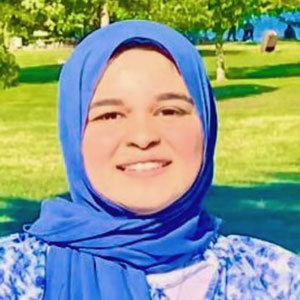
Mai Abdelmalek is a postdoc in Virginia Tech’s Bradley Department of Electrical and Computer Engineering. She earned her PhD at Florida International University (FIU).
Her faculty mentor is Jeffrey Reed, CCI chief technology officer, Willis G. Worcester Professor of electrical and computer engineering at Virginia Tech, and founding director of Wireless@Virginia Tech, one of the largest and most comprehensive university wireless research groups in the U.S.
What drew you to the cybersecurity field?
“The cybersecurity field has always interested me due to its profound implications not only for national security but also for our daily life activities,” Abdelmalek said. “Just contemplating how a single overlooked aspect of a network can trigger nationwide disaster is a stark reminder of the importance of increasing awareness of securing our digital infrastructure.
“Take the STUXNET worm cyberattack on Iranian nuclear facilities in 2015 as an example—an employee innocently plugging in a small USB drive nearly set a nuclear leakage catastrophe with far-reaching consequences. This incident shows the immense responsibility that comes with securing our digital infrastructure. It demonstrates that even the most advanced and fortified systems can be compromised if we fail to address vulnerabilities comprehensively.”
What role has CCI played in your postdoc studies?
CCI's pivotal role in shaping my postdoctoral studies significantly contributed to my research in cybersecurity. Their commitment to raising awareness and promoting research in this critical field sets a remarkable example for securing our digital infrastructure.
One of the standout aspects of CCI's involvement is their proactive support for researchers. They offer both seed funding and complete funds, which not only encourages but also empowers researchers to explore and test their innovative ideas. I had the privilege of receiving a research grant from CCI that enabled me to work on enhancing the security of drone infrastructure.
The outcome of this research project was highly successful, producing valuable insights and practical solutions. Moreover, the positive outcomes of my work have acted as a catalyst, inspiring other researchers to explore related avenues and submit their research proposals.
What projects are you currently working on?
ONR-MURI, Science of Tracking, Control, and Optimization of Information Latency for Dynamic Military IoT Systems.
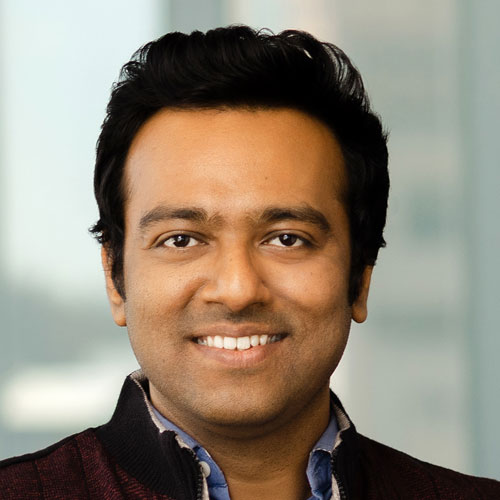
Mayukh Roy Chowdhury is a postdoc with CCI based at the CCI Hub at the Virginia Tech Research Center in Arlington. His work focuses on next-generation communication technologies. His faculty mentor is CCI xG Testbed Director Aloizio P. DaSilva. Chowdhury earned his PhD at the Indian Institute of Technology (IIT) Delhi, New Delhi, India. Learn more about Chowdhury on his personal website.
What role has CCI played in your postdoc studies?
CCI, being a consortium of over 40 institutions and more than 300 researchers, offers us an excellent platform to collaborate with researchers of different universities with similar research interests. CCI promotes strong collaboration between industry, academia, and government.
Because of its strategic location very close to Washington, D.C., it is very convenient for government agencies and international delegates visiting D.C. to come over to CCI and take a look at the research we are doing.
What makes CCI very unique is, in spite of being an academic institute primarily, it has a corporate organizational structure with dedicated people for marketing, communications, workforce development etc. All these have contributed towards making my experience at CCI a memorable and cherishable one.
What project(s) are you currently working on?
I am currently working on different projects related to 5G and beyond, next-generation cellular networks in general, with a focus on areas like Network Slicing, Network Function Virtualization, Spectrum Sharing, Open RAN etc. My work involves building intelligent and secure systems by application of optimization and/or AI/ML algorithms to solve different research problems.
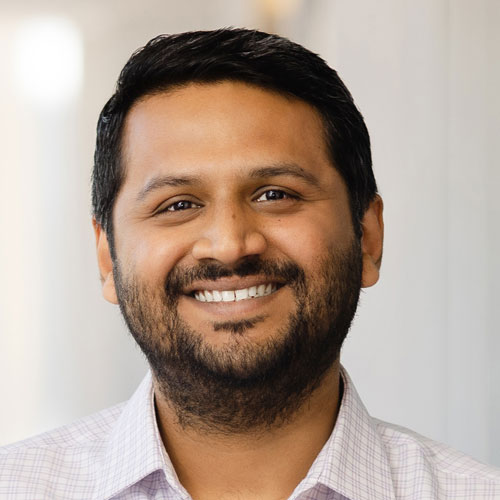
Ajay Kulkarni is a postdoc with CCI based at the CCI Hub at the Virginia Tech Research Center in Arlington. His faculty mentor is Feras A. Batarseh, an associate professor with the Commonwealth Cyber Initiative and the Department of Biological Systems Engineering (BSE) at Virginia Tech. Kulkarni earned his Ph.D. from George Mason University.
What drew you to the cybersecurity field?
“Cybersecurity is essential, considering the nation's critical infrastructures, and with advancements in AI, it is possible to develop AI-powered solutions to protect the critical infrastructures,” Kulkarni said about what drew him to the field. “My interest in AI and different applications in cyber attracted me to the cybersecurity field.”
What role has CCI played in your postdoc studies?
CCI provided me with a platform to conduct research in cybersecurity and explore AI's use to improve cybersecurity. Also, my mentor, Dr. Feras Batarseh, is helping me broaden my research horizon and providing opportunities to collaborate with industry partners. I thank CCI and Dr. Feras Batarseh for their support and encouragement.
What project(s) are you currently working on?
At present, I am working on multiple projects that lie at the intersection of AI and cybersecurity. Mainly, my work focuses on AI applications in the water domain, which involves the development of a decision-support tool. This can help to detect cyberattacks on wastewater treatment plants while increasing their efficiency. I am also currently focusing on the Agriculture and Food domains by collecting different cybersecurity incidents and exploring the utilization of AI in the Agriculture and Food domains.
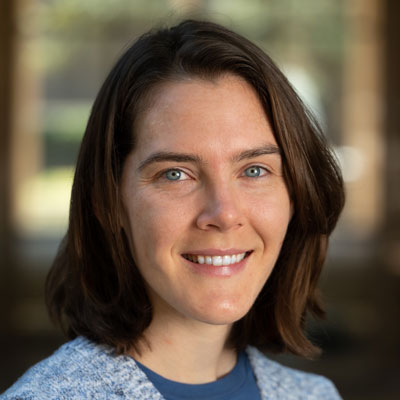
Emily McMillon is a CCI-funded postdoc in the College of Science at Virginia Tech. CCI Southwest Virginia Node Director Gretchen Matthews is her faculty mentor. McMillon earned her Ph.D. at the University of Nebraska–Lincoln. Her doctoral studies were in error-correcting codes.
What drew you to the cybersecurity field?
“I have been drawn to cybersecurity because error-correcting codes can be used for post-quantum cryptography,” McMillon said. “Code-based cryptography works by disguising confidential data by adding noise (errors) in ways that an authorized user can remove via decoding. This system is believed to resist quantum attack when used with certain codes, but improvements are needed to facilitate replacement of today’s algorithms with this more secure technology.”
What role has CCI played in your postdoc studies?
CCI supports a number of researchers in my field at Virginia Tech, which is home to one of the top coding/cryptography groups in the U.S. It has facilitated my interactions with many people in my field, most notably Dr. Gretchen Matthews, my postdoctoral mentor.
What project are you currently working on?
I'm working on a few projects, but I'll highlight just one. I'm considering quasi-cyclic moderate-density parity-check (QC-MDPC) codes for use in post-quantum cryptography. These codes use iterative decoding algorithms similar to low-density parity-check (LDPC) codes, but these decoding algorithms do not produce the same behavior for MDPC codes. I am therefore working to determine analytic ways to characterize decoder failure for MDPC codes.
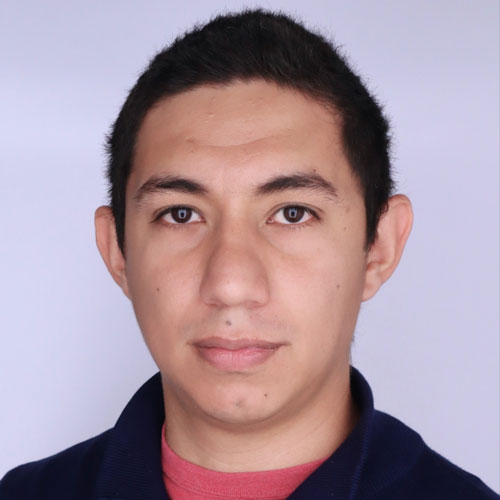
Eduardo Camps Moreno is a postdoc with the mathematics department at Virginia Tech. CCI Southwest Virginia Node Director Gretchen Matthews is his faculty mentor. He earned his Ph.D. from the National Polytechnic Institute of Mexico. You can learn more about Camps Moreno on his personal site.
What drew you to the cybersecurity field?
The upcoming quantum computers face several challenges before they reach a similar potential to the one of classic computation. One of such challenges is to ensure reliable communication between the components of a quantum computer. The core of my work is to design and study the properties of mathematical models to guarantee communication of the quantum information.
What role has CCI played in your postdoc studies?
Dr. Gretchen Matthews is the director of the CCI Southwest Virginia. To have the opportunity to be a part of the amazing network she is building is the main reason I am currently at Virginia Tech.
What project are you currently working on?
Currently, I am working on exploring the algebraic invariants that arise from linear codes. Such invariants can be implemented to improve the decodability of some codes or to implement attacks to some cryptosystems.
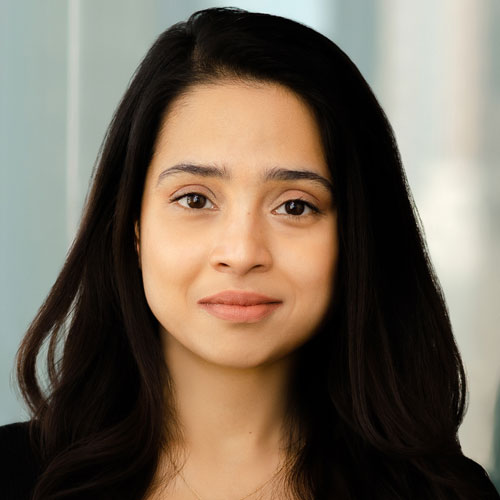
We’re proud to fund our first Virginia Tech Presidential Postdoctoral Fellow in cybersecurity, Priyanka Sinha. Her faculty mentors are Jacek Kibilda, a research associate professor at CCI and electrical and computer engineering (ECE) at Virginia Tech, and Walid Saad, an ECE professor at Virginia Tech and the Next-G wireless lead at the Virginia Tech Innovation Campus.
What drew you to the cybersecurity field?
The possibility of cutting-edge research on the security of machine learning drew Sinha to the cybersecurity field. Sinha is affiliated with the Virginia Tech ECE department. She earned her Ph.D. from North Carolina State University.
What role has CCI played in your postdoc studies?
This role has allowed me to gain knowledge via working on research papers and attending workshops.
For example, during the week of Sept. 11-15, I was invited to attend a workshop on Mathematics and Computer Science of Market and Mechanism Design Workshop held at the UC Berkeley campus and hosted by the Simons Laufer Mathematical Sciences Institute (SLMath).
During the workshop, I presented a poster about my ongoing work on "Mechanism Design for Federated Learning" at CCI and met some of the top researchers in the country. It was a meaningful experience.
What project(s) are you currently working on?
I’m working on two projects: robust adversarial learning/watermarking and federated learning.


